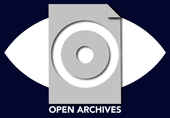Un acercamiento exploratorio en torno a la Universidad y siglo XXI: asignatura insignia para la formación integral de los discentes, desde la visión institucional y la mirada estudiantil
DOI:
https://doi.org/10.15332/erdi.v3i1.429Palabras clave:
“Universidad y Siglo” XXI, asignatura insignia, identidad universitaria, percepción estudiantil, formación integral de los discentesResumen
El presente artículo es un acercamiento exploratorio en torno a Universidad y Siglo XXI, resultado de la primera etapa de una investigación de trayectoria que se realiza por parte de un grupo de profesores especialistas en la temática, cuyo objetivo fue conocer la percepción de los estudiantes de la asignatura “insignia” denominada Universidad y Siglo XXI, para su formación integral. Las reflexiones alrededor de la nueva asignatura, surgen en esta primera fase como un acercamiento a partir del estudio de percepción aplicado a los discentes que ingresaron con la nueva reforma curricular durante el calendario escolar 2013-A al Centro Universitario de Ciencias Económico Administrativas (CUCEA) de la Universidad de Guadalajara (UDEG). En la UDEG, se consideró pertinente la incorporación de una asignatura “insignia” que brinde a la comunidad universitaria un estado de pertenencia; una visión crítica ante problemáticas en el ámbito local como global; un pensamiento crítico; el desarrollo de herramientas intelectuales, académicas y de investigación; una planeación y prospección de su vida y profesión; así como la construcción de su identidad universitaria, que permita que logren identificar los valores y símbolos, las aspiraciones y anhelos, las costumbres y tradiciones, las prácticas cotidianas y los compromisos sociales, que desde cada ser diversificado convergen hacia un fin común. Bajo estos ambiciosos propósitos, surge el Curso-Taller de “Universidad y Siglo XXI” en una modalidad presencial enriquecida (con la plataforma Moodle), que no debe concebirse como la panacea, sino como la oportunidad que la comunidad universitaria había esperado para fungir como catarsis de aquellos recovecos ausentes en su formación universitaria. El camino es complejo y el futuro incierto, pero con una visión amplia y pertinente de lo que se quiere y espera de nuestra universidad y de los universitarios, se llegará a construir lo que la sociedad del siglo XXI necesita.
Descargas
Citas
Brubaker, R. & Cooper, F. (2001). Más allá de la identidad. Apuntes de Investigación del CECYP, Vol. 7, pp. 30-67.
Cabral, M., Villanueva, E., Estrada, G., González, S. R., Juárez, C., Hernández, C.,Flores, M. & Nácar, V. (2006, 08 de noviembre). Identidad estudiantil universitaria en estudiantes de licenciatura. Revista PsicologiaCientifica.com, 8(16). Disponible en: http://www.psicologiacientifica.com/identidad-estudiates-universitarios
CUCEA (2010). Portal oficial del Centro Universitario de Ciencias Económico-Administrativas (CUCEA). Disponible en http://www.cucea.udg.mx
CUCEA (2013).Programa asignatura Universidad y Siglo XXI. Disponible en: http://www.cucea.udg.mx/?q=bitacora/consulta-en-l-nea-de-los-nuevosprogramas-de-asignatura
Choo, Chun Wei. (1999). The Knowing organization: How organizations use information to construct meaning, create knowledge and make decisions International. Journal of Informations Management, 16(5). Oxford: Oxford University Press. Disponible en http://choo.fis.utoronto.ca/FIS/respub/IJIM1996.pdf
Delors, J. (1996). La Educación encierra un tesoro, Informe a la UNESCO de la Comisión Internacional sobre la educación para el siglo XXI. Madrid: Santillana, Ediciones UNESCO.
Gómez, J., Latorre, A., Sánchez, M. y Flecha, R. (2006). Metodología Comunicativa Crítica. Barcelona: El Roure Ciencia.
González, P. (2001). La Universidad necesaria en el siglo XXI. México: Era
Holahan, C. (2003). Psicología ambiental: un enfoque general. México: Limusa Noriega Editores.
Jenkins, R. (1996). Social Identity Theorising social identity. Inglaterra: Routledge.
Kepowics, B. (2003). Valores en los estudiantes universitarios. En: Revista Reencuentro no. 38. Recuperado de http://bibliotecadigital.conevyt.org.mx/servicios/hemeroteca/reencuentro/no38/index.html
Luengo, E. (2006). Posibilidades de una nueva institucionalidad social: contribución desde la educación y el conocimiento. En Nuevos retos y derroteros para la educación superior en el siglo XXI. México: Universidad de Guadalajara.
Luque, M. (2003). Educación, multiculturalismo e identidad. España: Universidad de Lleida.
Milton, K. (1997). Estudio metodológico basado en el enfoque de percepciones. Disponible en: http://www.uam-antropologia.info/alteridades/alt8-4-vargas.pdf
Milton, K. (2002). Loving Nature. Towards an Ecology of Emotion. London: Routledge. Disponible en http://www.deepdyve.com/lp/sage/book-reviewloving-nature-towards-an-ecology-of-emotionBLk3RAQre2.
Morín, E. (1999). Los siete saberes necesarios de la educación del futuro. Paris, Francia: UNESCO. Disponible en http://www.bibliotecasvirtuales.com/biblioteca/articulos/ los7saberes/index.asp.
Morse, J. Editora (2003). Asuntos críticos en los métodos de investigación cualitativa. Antioquia: Universidad de Antioquia.
Piñero, M. (2012). Implicaciones de la subjetividad e intersubjetividad en el proceder de la investigación cualitativa. Recuperado de http://boards5.melodysoft.com/ForoDoctoradoUNY2012-1/re-introduccion-a-la-introduccion-92.html
Rusque, A. (2010). De la Diversidad a la Unidad en la Investigación Cualitativa. Caracas: Vadell Hnos. Editores, C.A.
Solís Gadea, H.R. (2013). “La universidad de Guadalajara del Siglo XXI” En la Gaceta UDEG. Año 11, edición 732. 04 de febrero de 2013. Disponible en: http:// gaceta.udg.mx/G_nota1.php?id=13331
Universidad de Guadalajara. “Informe de actividades 2012-2013 del rector del CUCEA, Mtro. Itzcóatl Tonatiuh Bravo Padilla”. Disponible en: www.udg.mx
Valdez, A. (2013) a. “Identidad universitaria” En la Gaceta UDEG. Año 11, edición 734. 18 de febrero de 2013. Disponible en: http://gaceta.udg.mx/G_nota1.php?id=13427
Valdez, A (2013) b. ¿Qué Significa ser UDEG? En la Gaceta UDEG. Año 12, edición 754. 22 de julio de 2013. Disponible en: http://gaceta.udg.mx/G_nota1.php?id=14357
Weick, K. (1995). Sensemaking in organizations. Sage. Thounsand Oaks. California. Disponible en http://www.utwente.nl/cw/theorieenoverzicht/Theory%20clusters/Organizational%20Communication/Sensemaking.doc/.
Descargas
Publicado
Cómo citar
Número
Sección
Licencia
El aviso de Copyright abajo expuesto aparecerá en la sección "Sobre Nosotros" de la revista y en cada metadato de los ítems publicados. Si bien corresponde a la revista determinar la naturaleza de su acuerdo de derecho de autor con los autores, el Proyecto de Conocimiento Público (PKP) recomienda el uso de la licenciaCreative Commons. A tal fín,se proporciona el ejemplo de aviso de Copyright que puede ser copiado y pegado en el espacio inferior para revistas que (a) ofrezcan acceso abierto, (b) ofrezcan acceso abierto retardado, o (c) no ofrezcan acceso abierto.








